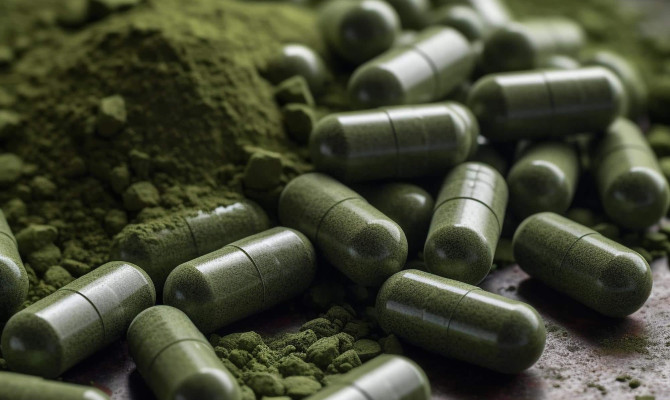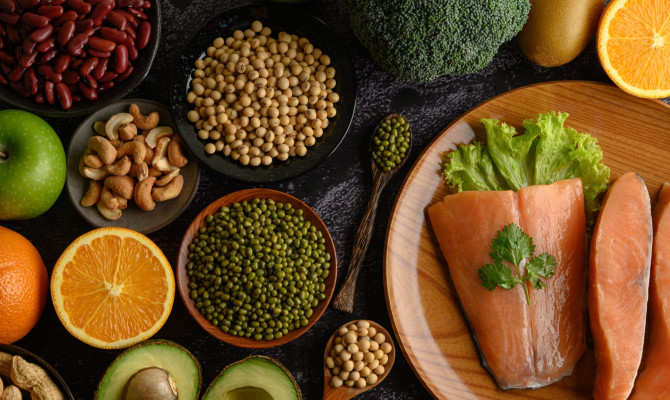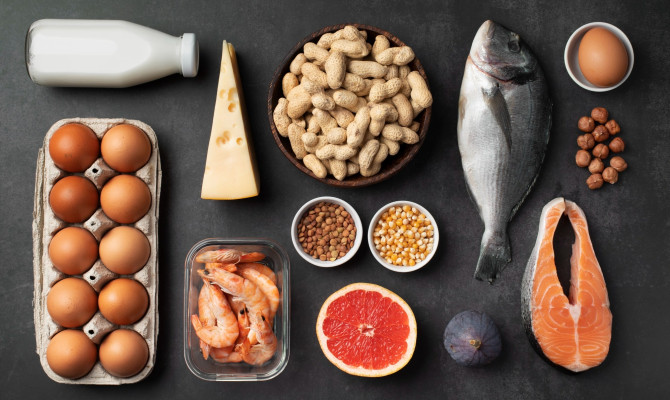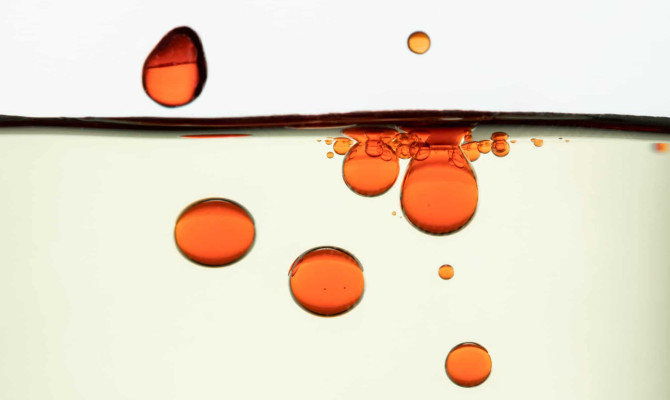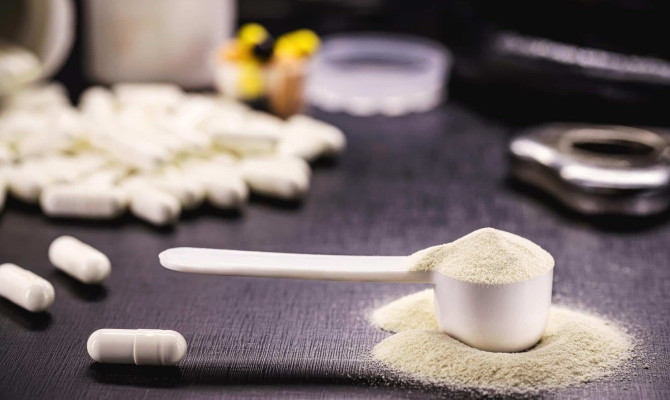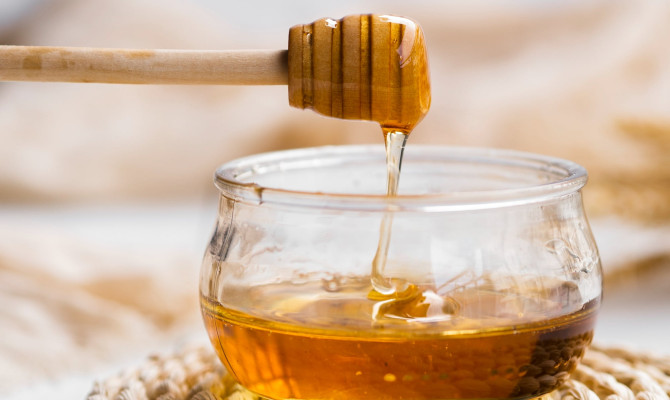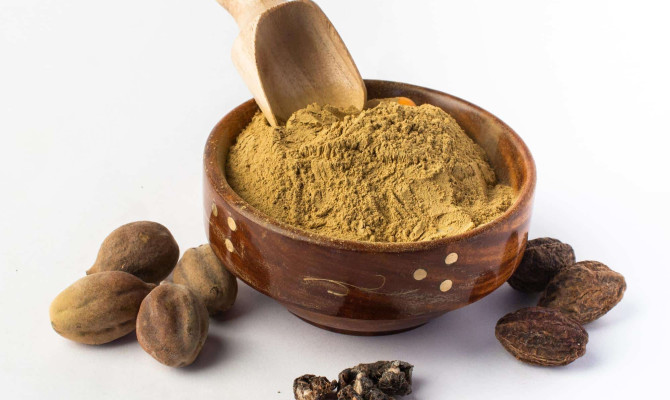Iodine and its health benefits

- Iodine
- 16 Aug 2023
Overview
What is Iodine?
Chemical element iodine has the atomic number 53 and the letter I as its symbol. It is a solid, glossy, non-metallic element with a high melting and boiling point of dark grey or purple-black. It has several uses in business and medicine and has an essential biological significance.1Overview| Researched based study from Nih.gov
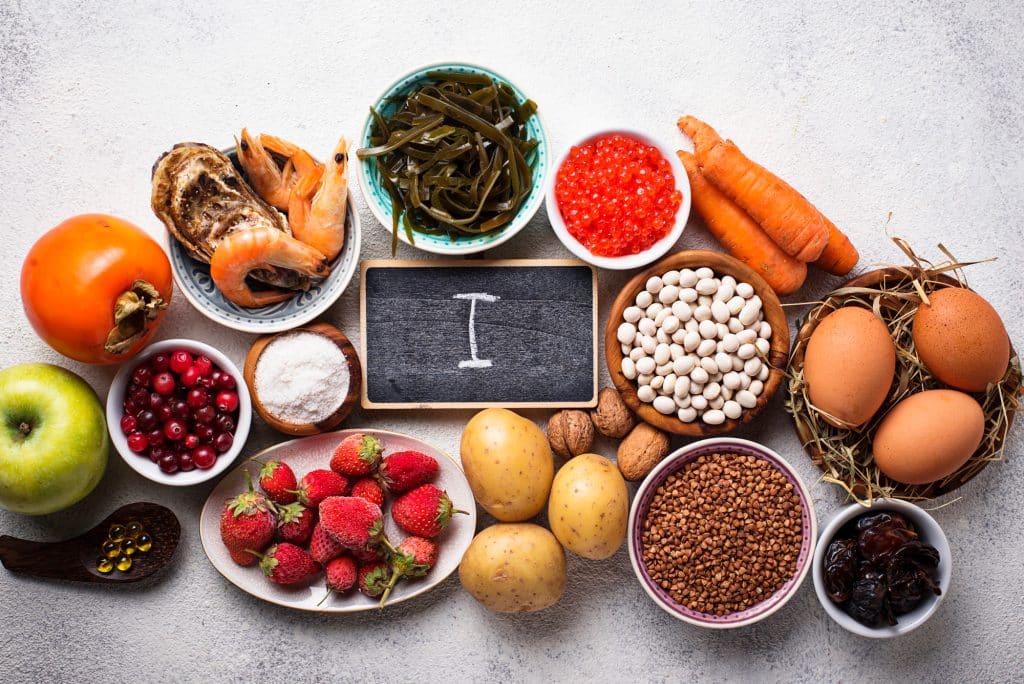
Facts
Facts on Iodine
- Iodine receives its name from the Greek word “iodes,” which meaning violet or purple, according to the violet tint of its vapor.
- In the stomach and duodenum, iodide is swiftly and almost entirely absorbed.
- Iodide enters the blood, is concentrated by the thyroid gland in the proper levels for thyroid hormone synthesis, and the majority of the residual amount is eliminated in the urine.
- Iodine has an abundance of only 0.5 parts per million in the crust of the Earth, making it a rare element.
- Iodine deficiency is more likely to occur in those who consume foods largely from areas of the world where iodine-deficient soils are prevalent.1Facts| Researched based study from Nih.gov
Benefits
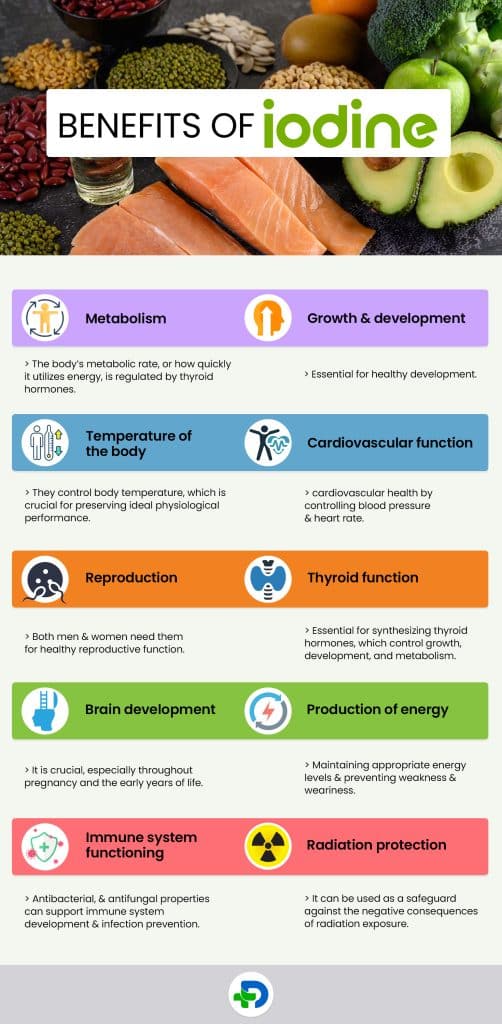
Benefits of Iodine
It is crucial, especially while producing thyroid hormones. The thyroid gland uses iodine to create the main hormones thyroxine (T4) and triiodothyronine (T3). These hormones regulate several essential physiological functions, including:4Biological role| Researched based study from Nlm.nih.gov
Metabolism
- The body’s metabolic rate, or how quickly it utilizes energy, is regulated by thyroid hormones.4Biological role| Researched based study from Nlm.nih.gov
Growth and development
- Essential for healthy development, especially in newborns and young children.
Temperature of the body
- They control body temperature, which is crucial for preserving ideal physiological performance.
Cardiovascular function
- Thyroid hormones contribute to the maintenance of cardiovascular health by controlling blood pressure and heart rate.
Reproduction
- Both men and women need them for healthy reproductive function.4Biological role| Researched based study from Nlm.nih.gov
Thyroid function
- Essential for synthesizing thyroid hormones, which control growth, development, and metabolism.
Brain development
- It is crucial, especially throughout pregnancy and the early years of life.
- Pregnant women who consume enough iodine can assist in protecting their unborn children from mental impairment.4Benefits| Researched based study from Nlm.nih.gov
Production of energy
- Iodine consumption that is enough can aid in maintaining appropriate energy levels and preventing weakness and weariness.
Immune system functioning
- Iodine’s antiviral, antibacterial, and antifungal properties can support immune system development and infection prevention.
Breast health
- It is associated with a lower risk of breast cancer. Fibrocystic breast disease, which results in noncancerous lumps in the breast tissue, is another ailment for which it is used as a therapy.
Radiation protection
- It can be used as a safeguard against the negative consequences of radiation exposure. Before exposure to radioactive iodine, taking iodine supplements can help lower the risk of thyroid cancer.4Benefits| Researched based study from Nlm.nih.gov
Sources
Dietary sources
Seafood
- One of the richest sources is seafood. Iodine content is notably high in fish, shellfish, and seaweed.
- An ounce of fried fish, for instance, has roughly 99 mg of iodine, but a quarter cup of dry seaweed might have up to 18,000 mg.
Eggs
- One big egg contains around 24 milligrams of iodine, making eggs a healthy mineral source.
Iodized salt
- This is a common iodine source in a lot of countries. Iodized salt in the US has an iodine content of around 45 mg per gram.
Vegetables
- Minor levels are found in potatoes, spinach, and broccoli. However, the soil in which they are cultivated influences the iodine concentration.1Sources| Researched based study from Nih.gov
Fruits
- Several fruits, including cranberries and strawberries, have trace quantities.
It’s crucial for those who follow vegan and vegetarian diets to guarantee enough intake through supplements or by ingesting iodine-rich foods because these diets might be deficient in iodine.1Sources| Researched based study from Nih.gov
Deficiency
Iodine deficiency
Goiter
- A typical symptom is an enlarged thyroid gland or goiter. Breathing and swallowing may become challenging as a result, and there may appear to be a neck enlargement.3Deficiency| Researched based study from Nlm.nih.gov
Hypothyroidism
- Hypothyroidism, or an underactive thyroid, can develop. A few effects of the condition include depression and weight gain.3Deficiency| Researched based study from Nlm.nih.gov
Cognitive impairment
- The shortage may result in cognitive impairment, particularly in newborns and young children.3Deficiency| Researched based study from Nlm.nih.gov
Increased chance of stillbirth and miscarriage
- Preterm delivery, low birth weight, and miscarriage are risks that the deficit might increase during pregnancy.
Delays in development
- Developmental delays in children, particularly in language and motor abilities, can result from iodine deficiency.3Deficiency| Researched based study from Nlm.nih.gov
Greater risk of thyroid cancer
- Particularly in areas with continuously low iodine consumption, this happens.3Deficiency| Researched based study from Nlm.nih.gov
What are the deficiency symptoms?
Hypothyroidism
- Hypothyroidism, or an underactive thyroid, may result. This may result in symptoms including exhaustion, weight gain, sadness, and others.
Dry skin
- Skin that is scaly, dry, and rough.
Hair fall
- It may result in hair loss and make it dry, brittle, and thin.
Cold sensation
- Causes a sense of coldness by reducing the body’s capacity to regulate temperature.
Gaining weight
- Even with a lower caloric intake, hypothyroidism brought on by the shortage can promote weight gain.
Fatigue and weakness
- Overall lack of energy and fatigue.2Deficiency symptoms| Researched based study from Nlm.nih.gov
Vulnerability
Who is prone to an iodine deficiency?
Women who are pregnant and breastfeeding
- To support fetal and newborn growth, respectively, they need extra iodine.
Infants and kids
- Cognitive impairment can result from iodine deficiency.
People who live in regions with low soil iodine levels
- People who stay in areas with low soil iodine levels may be at a higher risk since the amount of iodine in the soil varies significantly by region.6Vulnerability| Researched based study from Cdc.gov
Vegans and vegetarians
- Iodine intake in plant-based diets may be minimal.
Individuals who regularly consume goitrogens
- Foods that contain goitrogens, such as cruciferous vegetables, can affect how well the thyroid functions and make the iodine deficit worse.
Individuals with digestive issues
- Reduced absorption can result from digestive conditions like celiac disease or inflammatory bowel disease that prevent the absorption of nutrients.6Vulnerability| Researched based study from Cdc.gov
Dosage
Recommended dosage
- Newborns 0 to 6 months: 110 mcg
- 7 to 12-month-old babies: 130 mcg
- Children aged 1 to 8: 90 to 120 mcg
- Children aged 9 to 13: 120 to 150 mcg
- Teenagers aged 14 to 18: 150 to 220 mcg
- Adults aged 19 and up 150 to 220 mcg
- Women who are pregnant: 220 mcg to 290 mcg
- Women who are nursing: 290–330 mcg.1Dosage| Researched based study from Nih.gov
The maximum daily consumption for adults is 1100 mcg.1Dosage| Researched based study from Nih.gov
Toxicity
Overdose toxicity of Iodine
- Metallic taste in the mouth
- Burning sensation in the mouth, throat, and stomach.
- Nausea and vomiting
- Diarrhea
- Headache
- Weakness and fatigue
- Swelling of the salivary glands
- Fever
- Hypersensitivity symptoms, such as hives and rashes
- Hyperthyroidism
Iodine overdose can, in extreme circumstances, result in shock, confusion, and even coma.5Toxicity| Researched based study from Nlm.nih.gov
Interactions
Medicine-related interactions
Lithium
- Lithium, a medication used to treat bipolar illness, may become less effective when used with iodine.7Interactions| Researched based study from Nlm.nih.gov
Anti-thyroid drugs
- It may prevent anti-thyroid medications from working as intended.8Interactions| Researched based study from Nlm.nih.gov
Amiodarone
- This medication includes a significant quantity of iodine and treats abnormal heart rhythms.9Interactions| Researched based study from Nlm.nih.gov
ACE inhibitors
- They are used to treat high blood pressure, and in those with impaired kidney function, they can raise the risk of hyperkalemia (high potassium levels). It could be challenging to take both.10Interactions| Researched based study from Nlm.nih.gov
Takeaway
Key Takeaways
- Iodine is proven to have potential health benefits.
- It is an essential component for the overall growth and development of the body.
- Consuming iodine in moderate amounts is necessary. If you have any underlying medical condition or if you take any medications, it is best to talk to your doctor before taking any iodine supplements.
Any feedback on this article?
 This Articles content was accurate
This Articles content was accurate Very Informative Article
Very Informative Article I have a question or a comment
I have a question or a comment
 This article contains inaccurate content
This article contains inaccurate content This article was not helpful
This article was not helpful I have a question or a comment
I have a question or a comment
We appreciate your helpful feedback!
Checkout our social pages
References
-
National Institutes of Health
Iodine-Fact Sheet for Health Professionals | Overview | Sources | Dosage
-
National Library of Medicine
Iodine, Iodine metabolism and Iodine deficiency disorders revisited | Deficiency | Symptoms
-
National Library of Medicine
Health Consequences of Iodine Deficiency | Deficiency
-
National Library of Medicine
Iodine: Its Role in Thyroid Hormone Biosynthesis and Beyond | Biological role | Benefits
-
National Library of Medicine
Iodine Toxicity | Toxicity
-
Centers for Disease Control and Prevention
Trace Elements:Iodine | Vulnerability
-
National Library of Medicine
The influence of dietary iodine on lithium blood level, serum T4 and thyroid gland weight | Interactions
-
National Library of Medicine
Interaction of anti-thyroid drugs with iodine: the isolation of two unusual ionic compounds derived from Se-methimazole
-
National Library of Medicine
Amiodarone use in patients with documented allergy to iodine-containing compounds | Interactions
-
National Library of Medicine
ACE inhibition reduces cardiac iodine-123-MIBG release in heart failure | Interactions












